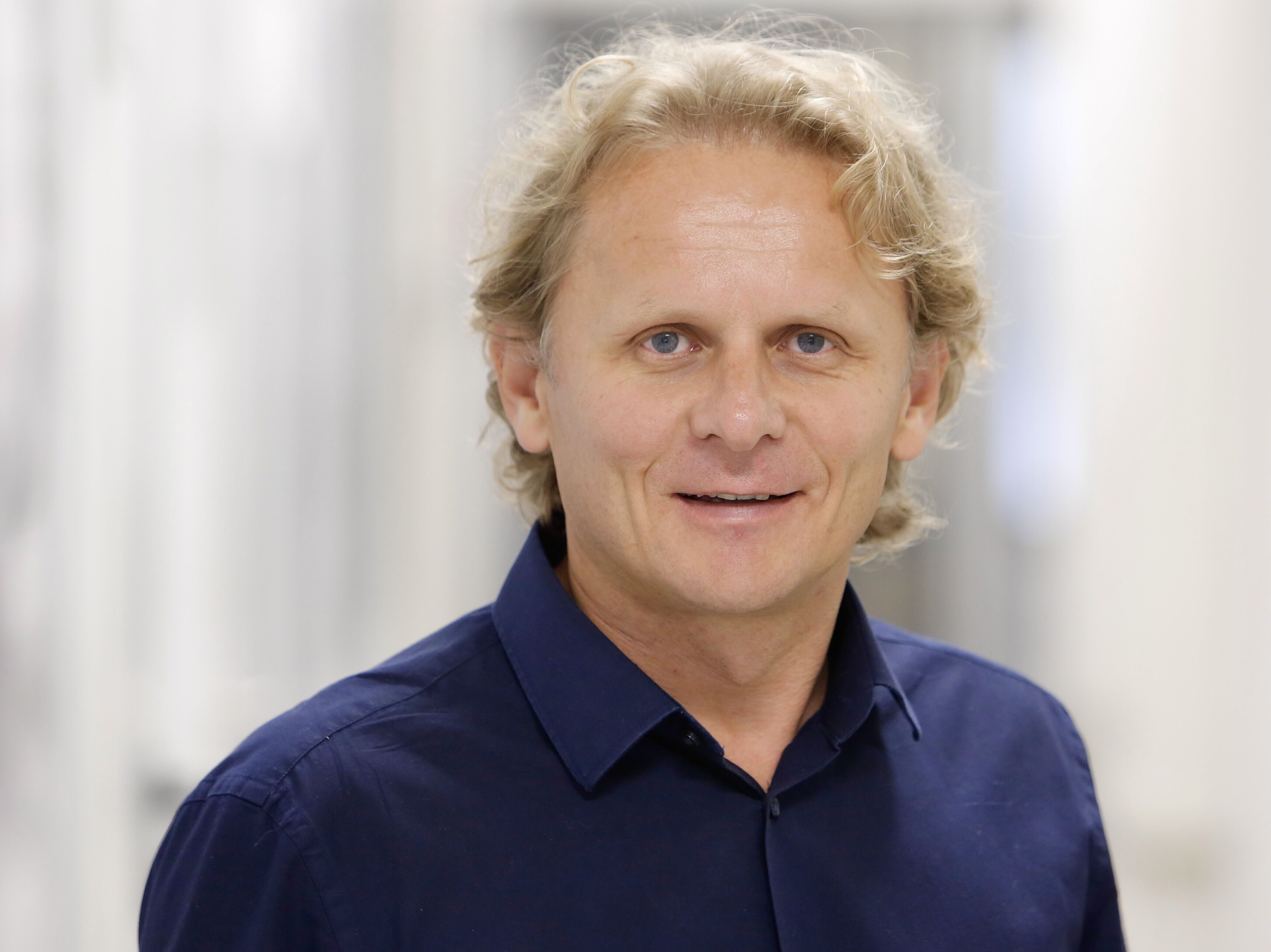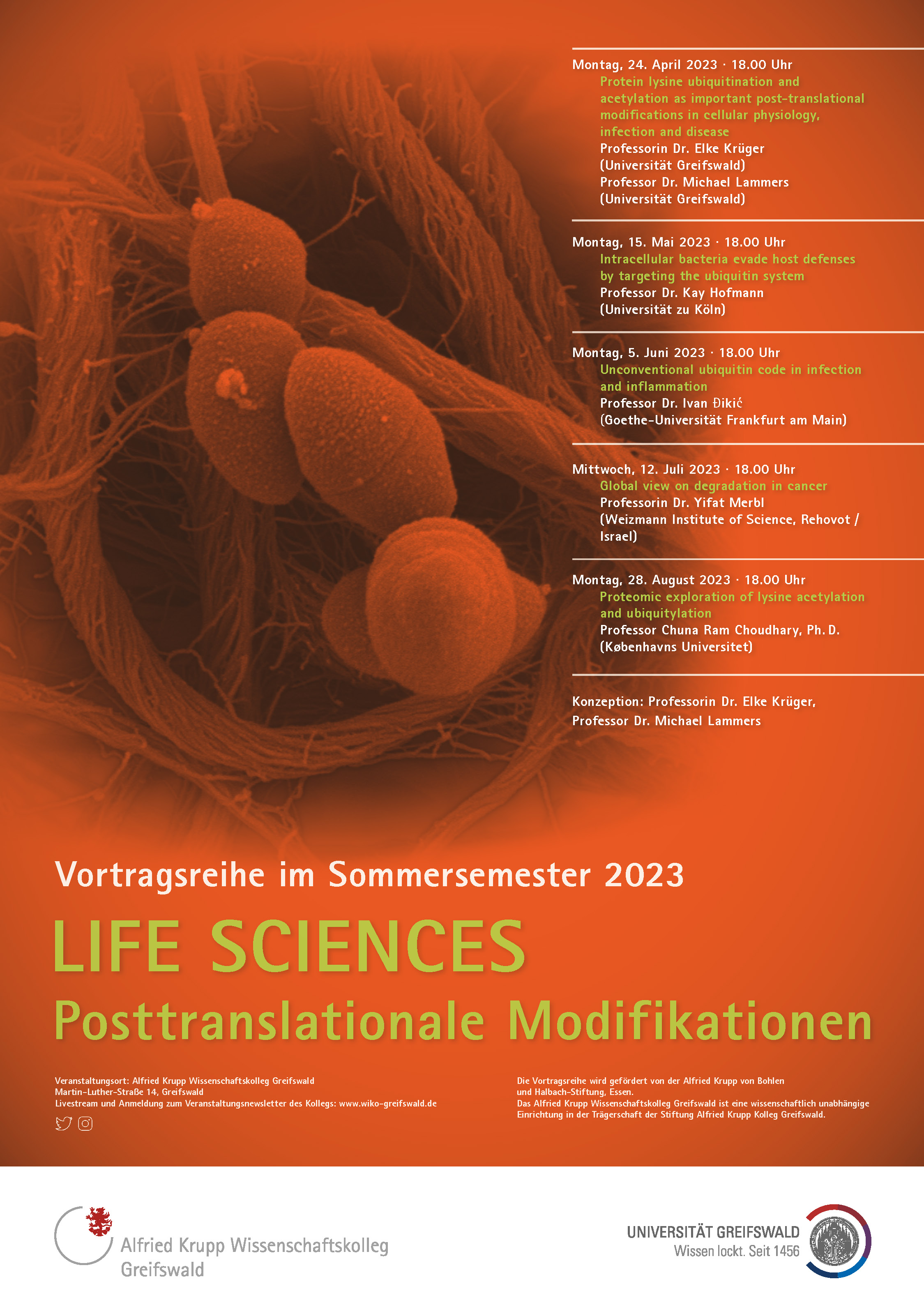Ubiquitination of proteins regulates a number of key cellular processes including protein degradation, endocytosis, translation, innate immunity and DNA repair. The major progress has been accomplished in linking diverse Ubiquitin modifications (Ub code) with specific cellular functions. These include conventional (lysine-linked) and unconventional ubiquitin modifications – from ester linkages to hydroxyls on proteins, lipids, sugars, to linkage via a ubiquitin serine residue in phosphoribosyl-linked (PR) ubiquitination mediated by effector proteins of pathogenic Legionella pneumophila. Molecular insights into this novel chemistry of ubiquitination that can modulate host-pathogen interactions, inflammation and immune responses during bacterial infection will be discussed.
Ivan Đikić is a leading expert in the fields of ubiquitin biology and autophagy research. He is Professor and Director of the Institute of Biochemistry II at Goethe University Frankfurt and a fellow of Max Planck Society. He investigates molecular principles of life and their pathological alterations that lead to the development of human diseases such as cancer, neurodegeneration and infection. For his scientific work he received numerous awards, including the Louis-Jeantet Prize, Jung Prize for Medicine and the Leibniz Prize.
Moderation: Professor Dr. Elke Krüger
-------
Organizational information
The Alfried Krupp Wissenschaftskolleg is offering this event live as a zoom meeting in which viewers can participate in writing via chat.
- We would be pleased if you provided your clear name when dialing into Zoom. Of course, you can also take part in the event under a pseudonym.
- A list of all participants can be viewed by all those involved throughout the event.
- During the lecture, the microphones of the spectators are all automatically muted so that no disturbing background noise is generated. You are welcome to turn on the camera of the spectators during the lecture.
- During the entire event, requests to speak or questions can be asked in writing in the chat.
Recording of the digital lecture
The digital lecture will be recorded for use in the college's media library. Only the speaker, his/her presentation and the moderator will be heard or seen in the recording. Video, audio or chat contributions are not recorded. A "REC" sign at the edge of the picture informs the participants.


